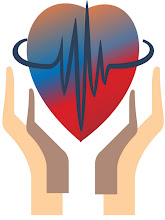Tips for Teens: The Truth About Alcohol
Slang--Booze, Sauce, Brews, Brewskis, Hooch, Hard Stuff, Juice
Alcohol affects your brain. Drinking alcohol leads to a loss of coordination, poor judgment, slowed reflexes, distorted vision, memory lapses, and even blackouts.
Alcohol affects your body. Alcohol can damage every organ in your body. It is absorbed directly into your bloodstream and can increase your risk for a variety of life-threatening diseases, including cancer.
Alcohol affects your self-control. Alcohol depresses your central nervous system, lowers your inhibitions, and impairs your judgment. Drinking can lead to risky behaviors, such as driving when you shouldn’t, or having unprotected sex.
Alcohol can kill you. Drinking large amounts of alcohol at one time or very rapidly can cause alcohol poisoning, which can lead to coma or even death. Driving and drinking also can be deadly. In 2003, 31 percent of drivers age 15 to 20 who died in traffic accidents had been drinking alcohol.1
Alcohol can hurt you--even if you're not the one drinking. If you're around people who are drinking, you have an increased risk of being seriously injured, involved in car crashes, or affected by violence. At the very least, you may have to deal with people who are sick, out of control, or unable to take care of themselves.
Know the law. It is illegal to buy or possess alcohol if you are under age 21.
Get the facts. One drink can make you fail a breath test. In some States, people under age 21 can lose their driver's license, be subject to a heavy fine, or have their car permanently taken away.
Stay informed. "Binge" drinking means having five or more drinks on one occasion. Studies show that more than 35 percent of adults with an alcohol problem developed symptoms--such as binge drinking--by age 19.2
Know the risks. Alcohol is a drug. Mixing it with any other drug can be extremely dangerous. Alcohol and acetaminophen--a common ingredient in OTC pain and fever reducers--can damage your liver. Alcohol mixed with other drugs can cause nausea, vomiting, fainting, heart problems, and difficulty breathing.3 Mixing alcohol and drugs also can lead to coma and death.
Keep your edge. Alcohol is a depressant, or downer, because it reduces brain activity. If you are depressed before you start drinking, alcohol can make you feel worse.
Look around you. Most teens aren't drinking alcohol. Research shows that 71 percent of people 12-20 haven't had a drink in the past month.4
How can you tell if a friend has a drinking problem? Sometimes it's tough to tell. But there are signs you can look for. If your friend has one or more of the following warning signs, he or she may have a problem with alcohol:
- Getting drunk on a regular basis
- Lying about how much alcohol he or she is using
- Believing that alcohol is necessary to have fun
- Having frequent hangovers
- Feeling run-down, depressed, or even suicidal
- Having "blackouts"--forgetting what he or she did while drinking

Q. Aren't beer and wine "safer" than liquor?
A. No. One 12-ounce bottle of beer or a 5-ounce glass of wine (about a half-cup) has as much alcohol as a 1.5-ounce shot of liquor. Alcohol can make you drunk and cause you problems no matter how you consume it.
Q. Why can't teens drink if their parents can?
A. Teens’ brains and bodies are still developing; alcohol use can cause learning problems or lead to adult alcoholism.5 People who begin drinking by age 15 are five times more likely to abuse or become dependent on alcohol than those who begin drinking after age 20.6
Q. How can I say no to alcohol? I'm afraid I won't fit in.
A. It's easier to refuse than you think. Try: "No thanks," "I don't drink," or "I'm not interested." Remember that the majority of teens don't drink alcohol. You're in good company when you're one of them.
For more information visit:
Reference: http://ncadi.samhsa.gov
This article is a re-print from: http://ncadi.samhsa.gov/govpubs/ph323/





No comments:
Post a Comment